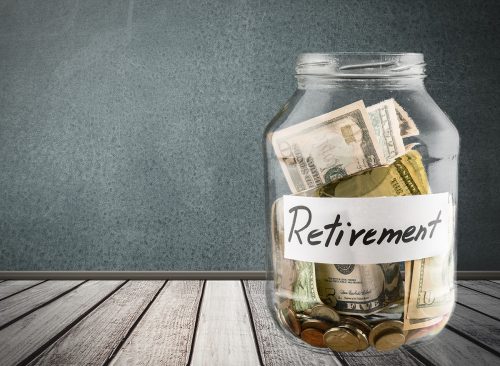The Exact Best Age to Make Financial Decisions: A Study Reveals the Answer
The researchers found it peaks at one age and then declines.

Older is supposed to mean wiser, but when does your wisest era kick in, particularly when it comes to making financial decisions? Experts claim to have the answer, courtesy of a new study. Read on to find out at what ages are best for making wealth-related moves, according to science.

The 2022 study, led by Rafal Chomik, an economist in Australia at the ARC Centre of Excellence in Population Aging Research, looked at financial literacy, which is the ability to understand financial information and apply it to managing personal finances. The researchers found it peaks at one age and then declines.

The study evaluated respondents’ financial literacy with questions about inflation, interest rates, and diversification. One question: If in five years, your income has doubled and prices have doubled, will you be able to buy (A) less, (B) the same, (C) more than today. (The answer is B.)

The study found that financial literacy typically peaks at age 54 and then trails off. So the best age to make financial decisions are 53 and 54. “As we get older, we seem to rely more on past experience, rules of thumb, and intuitive knowledge about which products or strategies are better,” Chomik told the Wall Street Journal this week.

“Financial decision-making requires a combination of reasoning skills that differ by age,” the Wall Street Journal explains. “Those in their 20s are better at absorbing and processing new information and computing numbers—so-called fluid intelligence—but don’t have as much life experience or crystallized intelligence—the accumulation of facts and knowledge. Crystallized intelligence tends to improve with age.”

Financial coach Beverly Miller, 65, told the Journal she did a number of things right in her younger years, including avoiding credit card debt and paying off loans and mortgages ahead of time. But she made some mistakes with investing—choosing “safe” choices that didn’t pay off—and didn’t consult a financial advisor until she was in her 50s. “In your 50s, you have enough maturity and experience to know you need help,” says Miller.

Economic researchers have previously found that people make the fewest money-related mistakes at age 53. In a 2009 study in the Brookings Papers on Economic Activity, economists looked at financial choices made by adults in 10 financial areas, including home-equity loans, lines of credit, mortgages, and credit cards, and how those decisions affected fees and interest payments.

Fees and interest payments, across all ten areas, are at their lowest levels around age 53, that study found. The researchers dubbed that age the “age of reason,” or the point at which financial mistakes are minimized.

By age 53, “people have been dealing with financial markets for years and know how to look for the right financial product, and minimize fees and payments,” Sumit Agarwal, a professor of finance at the National University of Singapore and an author of the study, told the Wall Street Journal.

One common significant financial mistake made by 50-year-olds is underestimating life expectancy. That can lead to not saving or investing enough for retirement. The typical 50-year-old expects to live until age 76, but actuarial estimates predict that person will live to age 86, the Journal reported. A 2020 study in the U.S. found that 28% of adults 50 and older underestimated their life expectancy by at least five years.
RELATED: 30 Area Codes to Watch for in Latest Phone Scam

Some good financial advice, no matter your age: Live below your means and keep your analytical skills strong by reading and exercising the brain. Learning new things can actually keep the brain younger than its chronological age, experts have found.














